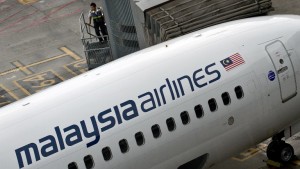When Malaysia Airlines flight MH370 disappeared
PARIS, France — In what remains one of the biggest mysteries in the history of civil aviation, Malaysia Airlines flight MH370 disappeared on March 8, 2014 without a trace, in what was finally declared by the Malaysian authorities on Thursday an “accident”.
The doomed flight took off from the Malaysian capital Kuala Lumpur at 00:41 a.m. Saturday, March 8, 2014 (1641 GMT Friday) with 239 people on board, including 227 passengers, of which 153 were Chinese, headed for Beijing.
An hour after takeoff, flight MH370 changed course and lost all contact with air traffic controllers.
Vietnam said shortly afterwards that the plane disappeared into thin air in its airspace and launched a search after detecting traces of oil in its waters.
A day later, Malaysia said it was following up the possibility that the disappearance was terrorist-linked and the US FBI sent agents.
Article continues after this advertisementAfter, there was a series of false leads, as when Beijing on March 12 announced it had detected large “floating objects” in a region of the sea where it suspected the missing flight had an accident.
Article continues after this advertisementMalaysian authorities said the plane’s main communication systems shut down, that the change of flight path was due to a deliberate move by someone on board and that the plane continued to fly for at least seven hours.
Searches at the homes of the pilots in Kuala Lumpur and probes of their backgrounds revealed no leads.
In mid-March the search zone was enlarged, with 26 countries taking part.
On March 30, Australia was charged with coordinating the search operation in the remote Indian Ocean which involved seven countries – Australia, China, Japan, Malaysia, New Zealand, South Korea and the United States — with the support of a British submarine.
Despite more than 300 air sorties, searches covering more than 4.5 million square kilometers (1.7 million square miles), were fruitless and failed to find any wreckage. Priority was therefore given to submarine exploration.
Raw satellite data showed that the missing flight went down in the southern Indian Ocean, information demanded by passengers’ relatives who were frustrated over the failure to find any wreckage.
In early October, new searches were launched in the area.
The Australian Transport Safety Bureau (ATSB), has so far overseen a combing of 26 percent of the 60,000 square kilometer (23,000 square mile) priority underwater search area.
Three specialist search vessels, with a fourth on the way, are probing the isolated region and believe the plane may be sitting on the ocean floor at depths of 4,000 metres (13,123 feet).
The most credible explanation for the disappearance, according to officials charged with the probe, is a sudden fall in the oxygen level in the aircraft which rendered the crew and the passengers unconscious.
According to that hypothesis, the plane then continued to fly on automatic pilot until, when fuel ran out, it plunged into the sea.
